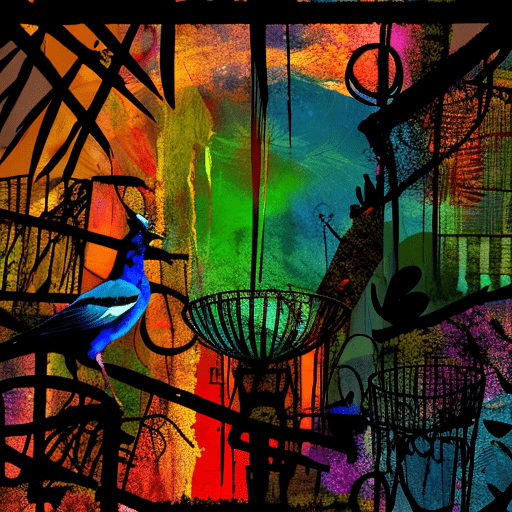One-line Summary:
Maya Angelou’s memoir, I Know Why the Caged Bird Sings, explores her journey from a troubled childhood to finding her voice and embracing her identity as a Black woman in America.
Introduction:
I Know Why the Caged Bird Sings is an autobiographical novel written by Maya Angelou. Published in 1969, it is the first in a series of seven books that chronicle Angelou’s life. The book covers her childhood and adolescence, focusing on themes of racism, identity, and resilience. Through her powerful storytelling, Angelou provides a poignant and honest account of her experiences, ultimately inspiring readers to overcome adversity and embrace their own unique voices.
Discovering Identity in a Racist Society:
Growing up in the racially segregated South during the 1930s and 1940s, Angelou faces numerous challenges as a Black girl. She grapples with feelings of inferiority and struggles to find her place in a society that devalues her race. Through her vivid descriptions, Angelou exposes the harsh realities of racism, from the humiliation of being refused service in a white-owned store to witnessing the brutal lynching of a Black man. Despite these injustices, Angelou’s resilience shines through as she begins to understand the power of her own voice and the importance of embracing her identity.
A Journey of Self-Discovery:
As Angelou navigates her tumultuous childhood, she encounters various influential figures who shape her understanding of the world and herself. Her relationship with her grandmother, Momma, provides a sense of stability and love in her life. Momma’s unwavering strength and pride in their Black heritage instill in Angelou a sense of self-worth. Additionally, her friendship with a white girl named Louise challenges societal norms and teaches her the value of empathy and compassion. Through these relationships, Angelou embarks on a journey of self-discovery, gradually finding her voice and learning to love herself.
Overcoming Trauma and Finding Redemption:
The memoir also delves into the traumatic experiences that Angelou endures during her childhood. At the age of eight, she is sexually abused by her mother’s boyfriend, which leaves her feeling broken and silenced. The aftermath of this trauma leads to a period of muteness, during which Angelou finds solace in books and poetry. Eventually, she finds her voice again through the power of literature and begins to heal. The memoir serves as a testament to the strength of the human spirit and the capacity for resilience and redemption.
Key Takeaways:
- Maya Angelou’s memoir, I Know Why the Caged Bird Sings, explores themes of racism, identity, and resilience.
- The book provides a powerful account of Angelou’s journey from a troubled childhood to finding her voice and embracing her identity as a Black woman.
- Through her vivid storytelling, Angelou exposes the harsh realities of racism and the importance of embracing one’s own unique voice.
- The memoir also delves into the traumatic experiences Angelou endures, highlighting the strength of the human spirit and the capacity for resilience and redemption.
“There is no greater agony than bearing an untold story inside you.” – Maya Angelou
In I Know Why the Caged Bird Sings, Maya Angelou’s powerful memoir, readers are taken on a journey through her troubled childhood and adolescence, witnessing her struggles with racism, identity, and trauma. Through her vivid storytelling, Angelou exposes the harsh realities of a racist society while also highlighting the importance of embracing one’s own unique voice. The memoir serves as a testament to the strength of the human spirit and the power of resilience and redemption. Ultimately, Angelou’s story inspires readers to find their own voices and overcome adversity, reminding us that our stories have the power to heal and transform.












